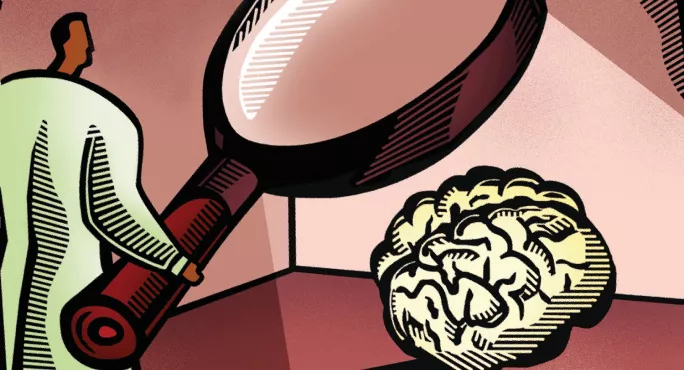- Home
- The teenage brain: what’s happening and why
The teenage brain: what’s happening and why

Sarah-Jayne Blakemore wants you to be nicer to teenagers. Or rather, to show more understanding that they are not as adult as they may appear and that the behaviours they often adopt are sometimes out of their control.
“One of the messages of my research, the papers we write and the books I have written, is that we should be more understanding of teenagers, of this really critical period of development,” she says.
Blakemore is professor of cognitive neuroscience at the Institute of Cognitive Neuroscience, University College London, and author of books including the multi-award-winning Inventing Ourselves: the secret life of the teenage brain. Speaking on the Tes Podagogy podcast, she explains that we often overestimate what a teenager is capable of doing.
Huge changes
“Masses of research from my lab and other labs has shown that the prefrontal cortex and functions that rely on the prefrontal cortex - like planning and decision-making and thinking about the consequences of actions - all these behaviours and the brain regions they rely on are undergoing a very protracted, slow and substantial change in adolescence,” she reveals. “Yet, what I find interesting is that once a child looks more like an adult, then we do place quite high expectations on them to do all their own planning, to make all their own decisions and to make the right decisions.
“When you’re interacting with very young children, you do not expect them to act like adults, you do not expect them to be rational and you know they have a very underdeveloped brain and you would not expect them to make their own decisions and plan their own day. Of course, teenagers’ brains are much more developed than young children’s brains, but they are still not fully adult yet. We need to remember that.”
Remembering that should translate into a “more sympathetic view of why teenagers may be taking risks or being influenced by their friends” and it should also prompt important questions about how we structure schools, the curriculum and learning, she argues.
“It is interesting to think, if you were designing from scratch the optimal way to educate young people, would it look like the way we set up classroom structures and curricula today? I find it interesting that classrooms have not changed for hundreds of years; it feels like they must work, but have we ever really tested an alternative? I think teenagers themselves should be involved in the design of classrooms and teaching structures.”
Mental health
In the podcast, Blakemore also discusses mental health and how we are yet to fully understand the risk factors that might predict mental health challenges.
“A lot of our work is looking at predictive factors for mental health,” she explains. “One of the major reasons we are doing this is for preventative interventions. We need to understand the risk factors that precede the mental health problem. We do not have that at the moment; the interventions happen when the mental health problem has started.”
While we cannot currently prevent or predict mental health challenges, she is currently working with other academics to try to ascertain whether mindfulness might help support those who face them.
“We are working on a very big, Wellcome-funded project on mindfulness in schools and [exploring] whether it has benefits on mental health and wellbeing,” she explains. “It will be the biggest study of mindfulness for young people. Mindfulness is already very popular, but it has not been through proper randomised controlled trials, so we do not know if it works. It really needs to be done, and that is why we are doing it.
“The thing we are looking at closely is attentional control. If you practise mindfulness a lot, [it’s about] whether you can control your attention and bring it back from the negative thought you might be having, to your breathing and your body.”
Technical advances
Blakemore goes on to discuss the introduction of a delay to school start times to match teenagers’ sleep rhythms, and how neuroscience may develop over the next 20 years.
“Our understanding is so radically different to how we understood the human brain 20 years ago,” she says. “We know a huge amount about which parts of the brain do what. What we do not know is the working of the brain at the cellular level; MRI [brain scanning] does not have the resolution for that at the moment - so, [at] the level of the synapse or the neuron - and that places a limit on how much we can understand how the brain works and develops.”
To listen to the podcast in full, search for ”Tes the education podcast” on your podcast platform, or click the player below or this link
Keep reading for just £1 per month
You've reached your limit of free articles this month. Subscribe for £1 per month for three months and get:
- Unlimited access to all Tes magazine content
- Exclusive subscriber-only stories
- Award-winning email newsletters



